第25章 CHAPTER IX(4)
The claret, once so famous in the 'land of cakes,' had given place to toddy; its flow was in due measure to the flow of soul. But all that ends is short - the old friends had spent their last evening together. Yes, their last, perhaps. It was bed-time, and quoth Napier to his lordship, 'I tell you what it is, Bishop, I am na fou', but I'll be hanged if I haven't got two left legs.'
'I see something odd about them,' says his lordship. 'We'd better go to bed.'
Who the bishop was I do not know, but I'll answer for it he was one of the right sort.
In 1846 I became an undergraduate of Trinity College, Cambridge. I do not envy the man (though, of course, one ought) whose college days are not the happiest to look back upon. One should hope that however profitably a young man spends his time at the University, it is but the preparation for something better. But happiness and utility are not necessarily concomitant; and even when an undergraduate's course is least employed for its intended purpose (as, alas! mine was) - for happiness, certainly not pure, but simple, give me life at a University, Heaven forbid that any youth should be corrupted by my confession! But surely there are some pleasures pertaining to this unique epoch that are harmless in themselves, and are certainly not to be met with at any other. These are the first years of comparative freedom, of manhood, of responsibility. The novelty, the freshness of every pleasure, the unsatiated appetite for enjoyment, the animal vigour, the ignorance of care, the heedlessness of, or rather, the implicit faith in, the morrow, the absence of mistrust or suspicion, the frank surrender to generous impulses, the readiness to accept appearances for realities - to believe in every profession or exhibition of good will, to rush into the arms of every friendship, to lay bare one's tenderest secrets, to listen eagerly to the revelations which make us all akin, to offer one's time, one's energies, one's purse, one's heart, without a selfish afterthought - these, I say, are the priceless pleasures, never to be repeated, of healthful average youth.
What has after-success, honour, wealth, fame, or, power - burdened, as they always are, with ambitions, blunders, jealousies, cares, regrets, and failing health - to match with this enjoyment of the young, the bright, the bygone, hour? The wisdom of the worldly teacher - at least, the CARPE DIEM - was practised here before the injunction was ever thought of. DU BIST SO SCHON was the unuttered invocation, while the VERWEILE DOCH was deemed unneedful.
Little, I am ashamed to own, did I add either to my small classical or mathematical attainments. But I made friendships - lifelong friendships, that I would not barter for the best of academical prizes.
Amongst my associates or acquaintances, two or three of whom have since become known - were the last Lord Derby, Sir William Harcourt, the late Lord Stanley of Alderley, Latimer Neville, late Master of Magdalen, Lord Calthorpe, of racing fame, with whom I afterwards crossed the Rocky Mountains, the last Lord Durham, my cousin, Sir Augustus Stephenson, ex-solicitor to the Treasury, Julian Fane, whose lyrics were edited by Lord Lytton, and my life-long friend Charles Barrington, private secretary to Lord Palmerston and to Lord John Russell.
But the most intimate of them was George Cayley, son of the member for the East Riding of Yorkshire. Cayley was a young man of much promise. In his second year he won the University prize poem with his 'Balder,' and soon after published some other poems, and a novel, which met with merited oblivion. But it was as a talker that he shone. His quick intelligence, his ready wit, his command of language, made his conversation always lively, and sometimes brilliant.
For several years after I left Cambridge I lived with him in his father's house in Dean's Yard, and thus made the acquaintance of some celebrities whom his fascinating and versatile talents attracted thither. As I shall return to this later on, I will merely mention here the names of such men as Thackeray, Tennyson, Frederick Locker, Stirling of Keir, Tom Taylor the dramatist, Millais, Leighton, and others of lesser note. Cayley was a member of, and regular attendant at, the Cosmopolitan Club; where he met Dickens, Foster, Shirley Brooks, John Leech, Dicky Doyle, and the wits of the day; many of whom occasionally formed part of our charming coterie in the house I shared with his father.
Speaking of Tom Taylor reminds me of a good turn he once did me in my college examination at Cambridge. Whewell was then Master of Trinity. One of the subjects I had to take up was either the 'Amicitia' or the 'Senectute' (I forget which).
Whewell, more formidable and alarming than ever, opened the book at hazard, and set me on to construe. I broke down. He turned over the page; again I stuck fast. The truth is, I had hardly looked at my lesson, - trusting to my recollection of parts of it to carry me through, if lucky, with the whole.
'What's your name, sir?' was the Master's gruff inquiry. He did not catch it. But Tom Taylor - also an examiner - sitting next to him, repeated my reply, with the addition, 'Just returned from China, where he served as a midshipman in the late war.' He then took the book out of Whewell's hands, and giving it to me closed, said good-naturedly: 'Let us have another try, Mr. Coke.' The chance was not thrown away;
I turned to a part I knew, and rattled off as if my first examiner had been to blame, not I.